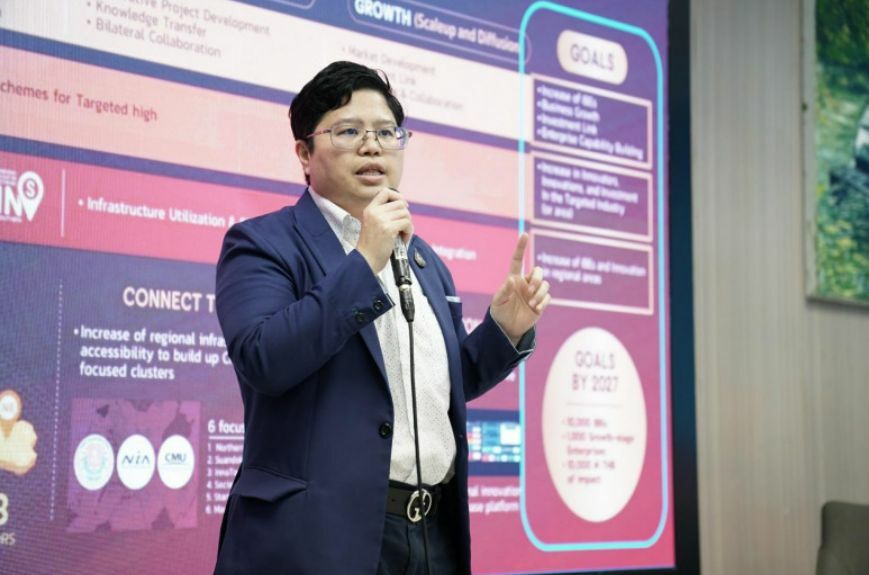NIA Reform: Thailand supports startups and SMEs market entry

The National Innovation Agency (NIA) reformed its financial assistance measures, shifting focus towards aiding startups and small and medium-sized enterprises (SMEs) in getting their products to market, rather than simply supporting the development of prototypes.
This year, the state agency has allocated 300 million baht to support these businesses, to generate a 3 billion baht economic and social impact, which is expected to rise to 10 billion by 2027.
The NIA’s co-funding initiatives in collaboration with venture capital (VC) firms and corporate venture capital (CVC) firms are anticipated to significantly drive funding growth, particularly in the seed and Series A stages of startups, according to Krithpaka Boonfueng, the executive director of the agency.
Beginning in fiscal 2024, the NIA’s financial support programmes will shift from an emphasis on research and development, and prototypes, to a focus on product growth for SMEs and startups.
Krithpaka also stated that the agency will place a greater emphasis on pushing products to market, product testing, market testing, and product improvement post-launch.
“Providing wider access to funding is one way to strengthen Thailand’s innovation system. This will ensure that we support innovation that can generate income, including export capability and create impact value to the economy and society”
NIA Reform Focus
The NIA reform primarily focuses on five sectors: agricultural food and herbs, healthcare and medicine, tourism, soft power, and the environment and electric vehicles.
Through its 300-million-baht financial scheme, the agency aims to generate a social and economic impact worth 3 billion baht.
Sura-at Supachatturat, the recently appointed deputy executive director of the NIA, stated that this year’s focus will be on promoting economic innovation, with social innovation as the focus for the following year.
The new financial support will encompass corporate co-funding, supporting startups that raise between US$1 million and US$10 million in the seed to Series A phases.
Sura-at revealed the NIA will co-invest a maximum of 10 million baht per project and 50% with VCs, CVCs, and private equity trusts.
“The NIA will not take any shares in that startup. When they make a profit or raise funds in the next round, they will have to return our funding and we will invest for a maximum of five years.”
NIA Collaborations
Currently, the NIA collaborates with the Thai Venture Capital Association and is open to partnerships with foreign entities, particularly foreign VCs. This comes as economic slowdown in China and conflict in the Middle East has prompted VCs to shift their focus to Southeast Asia, including Thailand.
Sura-at further stated that the NIA reform aims to increase innovation-based enterprises (IBEs) and business growth in targeted areas. By 2027, it intends to have 10,000 IBEs and 1,000 growth-stage enterprises, with an economic impact worth 10 billion baht.
The NIA reform has seven mechanisms in place to support its funding. One such mechanism is for market expansion, which allows for testing innovations in both the private and public sectors.
The agency will provide funds at 100% of the project’s value to state agencies’ projects and 50% of the value for private organisations’ projects, or a maximum of 2 million baht per project for one year. This aims to enable the commercialisation of products to targeted customers.
Other mechanisms include support for easing working capital interest payments, testing product standards, and managing innovation development. These NIA reform mechanisms are designed to support businesses in improving their organisational processes, conducting product tests and evaluations, and applying for product certification.
Funds for these initiatives will not exceed specific set amounts and will be provided for a period of one year, reported Bangkok Post.
Follow more of The Thaiger’s latest stories on our new Facebook page HERE.
Latest Thailand News
Follow The Thaiger on Google News:


























